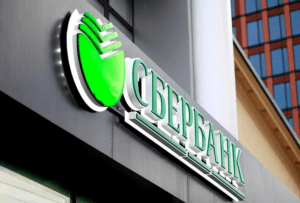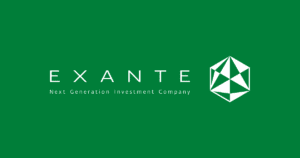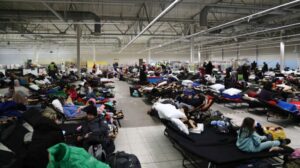
Ukraine has connected power unit No. 1 of the Khmelnytsky NPP to the power grid, as a result of which eight of the 15 existing power units are operating in the power system, the International Atomic Energy Agency (IAEA) reported, citing the Ukrainian nuclear regulator.
“Ukraine said one of the two units at the Khmelnytsky Nuclear Power Plant (NPP) had been reconnected to the grid after regulator maintenance,” according to the IAEA daily report on Ukraine on its website late on Wednesday.
As a result, eight of Ukraine’s 15 reactors are currently operating, including two at the Russian-controlled Zaporizhia NPP, three at the Rivne NPP, two at the Yuzhnoukrainsk NPP, and now one at the Khmelnytsky NPP.
“The seven other reactors are shut down for regular maintenance or held in reserve,” the agency said.
As reported, Ukraine stopped power unit No. 1 of the Khmelnytsky NPP on April 2, it remained in operation after power unit No. 2 was put into repair from February 18 for scheduled preventive repairs lasting approximately 92 days.
Before that, according to the IAEA, power unit No. 2 of the Rivne NPP was put out for repair.

The United States has included a number of Sberbank Group companies, including subsidiary banks in Ukraine and Kazakhstan, Cetelem Bank, bankrupt Sberbank Europe AG and payment service YooMoney, in its sanctions list, a statement from the U.S. Treasury Department’s Office of Foreign Assets Control (OFAC) indicated.
Sberbank Insurance, Sberbank Life Insurance, Sberbank Insurance Broker, Sberbank Leasing, Sberbank Factoring, NPF Sberbank, Sberbank-AST, Sberbank Capital, Sberbank CIB and Strategy Partners have also been included in the OFAC Specially Designated Nationals List (SDN List), as has United Credit Bureau, in which Sberbank holds a 50% according to the latest disclosure.
The SDN List now also includes Digital Technologies, a company through which Russia’s top bank invested in a range of information technology companies.
The United States on Wednesday imposed blocking sanctions against Sberbank that call for freezing assets in the U.S. and bar U.S. citizens from doing any business with the bank. The UK imposed similar sanctions against Sberbank.
The United States imposed correspondent and payable-through account sanctions against Sberbank in February 2022.

The Ministry of Finance of Ukraine in March raised the forecast for payments on public debt in 2022 by UAH 4.93 billion compared to the March forecast – up to UAH 572.26 billion, according to the forecast for April on the agency’s website.
According to him, the largest amount of payments falls on April-June of this year – UAH 167 billion, while in August-September it is projected at the level of UAH 145.32 billion, in October-December – UAH 124.63 billion.
The Ministry of Finance estimates payments on domestic debt in 2022 at UAH 440.95 billion, and on external debt at UAH 131.32 billion.
According to the Ministry of Finance, on a monthly basis, the largest amount of payments fell on February – UAH 75.78 billion, and May – UAH 69.59 billion.
At the same time, the ministry increased the forecast of payments on public debt in 2023 by UAH 25.71 billion to UAH 400.91 billion.
In 2024, the ministry expects a payment in the amount of UAH 348.74 billion.

Advisors to the leaders of 7 countries, including the United States, Great Britain, Turkey, Poland, Germany, France and Israel, are ready to discuss a list of security guarantees for Ukraine, Ukrainian President Volodymyr Zelenskyy said.
“The meeting will definitely take place, because it was confirmed by representatives of the guarantor countries. Of the future. This applies to the United States, Great Britain, Turkey, Poland, Germany, France, Israel. These are not all guarantors, but I named those countries that are already ready to come and discuss a list of security guarantees,” Zelensky said in an interview with the Turkish Haberturk TV channel.
He stressed that it is important for Ukraine to know what kind of guarantees these countries are willing to accept.
“They have different views. Some of them are ready for anything, for full support. And some not for full support. Therefore, we need a joint meeting with these countries at the level of advisers who will talk about a future document – guarantees of our sovereignty, independence and territorial integrity “, – he said, adding that, “when Ukraine is satisfied with everything in the document, a meeting with the Russian side will take place.”
The head of state also noted that a meeting with the advisers of these 7 countries should be held in the near future. “And then – just as quickly – with Russia, because there is a war going on in Ukraine,” he added.

EXANTE, an international broker licensed in Cyprus and active in the Ukrainian markets, announced a $1 million donation to UNICEF to help children and families affected by the ongoing war in Ukraine.
“Our company was founded on the belief that freedom is an inherent human right, and at times like these it’s more important than ever. As a result, our shareholders feel compelled to take action – after all, actions speak louder than words. Whilst we cannot change what’s happening, together with our colleagues and clients we hope that the money donated will truly make a difference and help the thousands of children and families affected,” Alexey Kirienko, the CEO of EXANTE, said.
“UNICEF is rapidly scaling up its humanitarian response in Ukraine and in neighboring countries. To date, UNICEF has delivered 858 tonnes of emergency supplies, including health supplies, hygiene kits, education and recreation supplies for children and adolescents, in addition to winter clothing,” the report says.
“UNICEF is appealing for $349 million to provide critical life-saving support for children and their families. This includes $ 276 million to respond to immediate needs within Ukraine and $ 73 million for humanitarian needs in neighboring countries. This funding will help to support over 3.5 million people, including 2.2 million children,” it states.
Founded in 2011, EXANTE describes itself as a wealth-tech company providing centralized investment solutions and infrastructure for financial institutions. The company employs over 500 people and manages $1.6 billion.

Since February 24, 2.5 million citizens of Ukraine have crossed the Polish border, according to the Polish Border Guard Service.
“Yesterday, on April 5, 21,000 travelers were registered, which is 13% more than the day before (18,500). Today, 4,700 had been issued by 07:00 with an increase of 23%,” the message posted on Twitter says.
Since February 24, 485,000 people have left Poland for Ukraine.